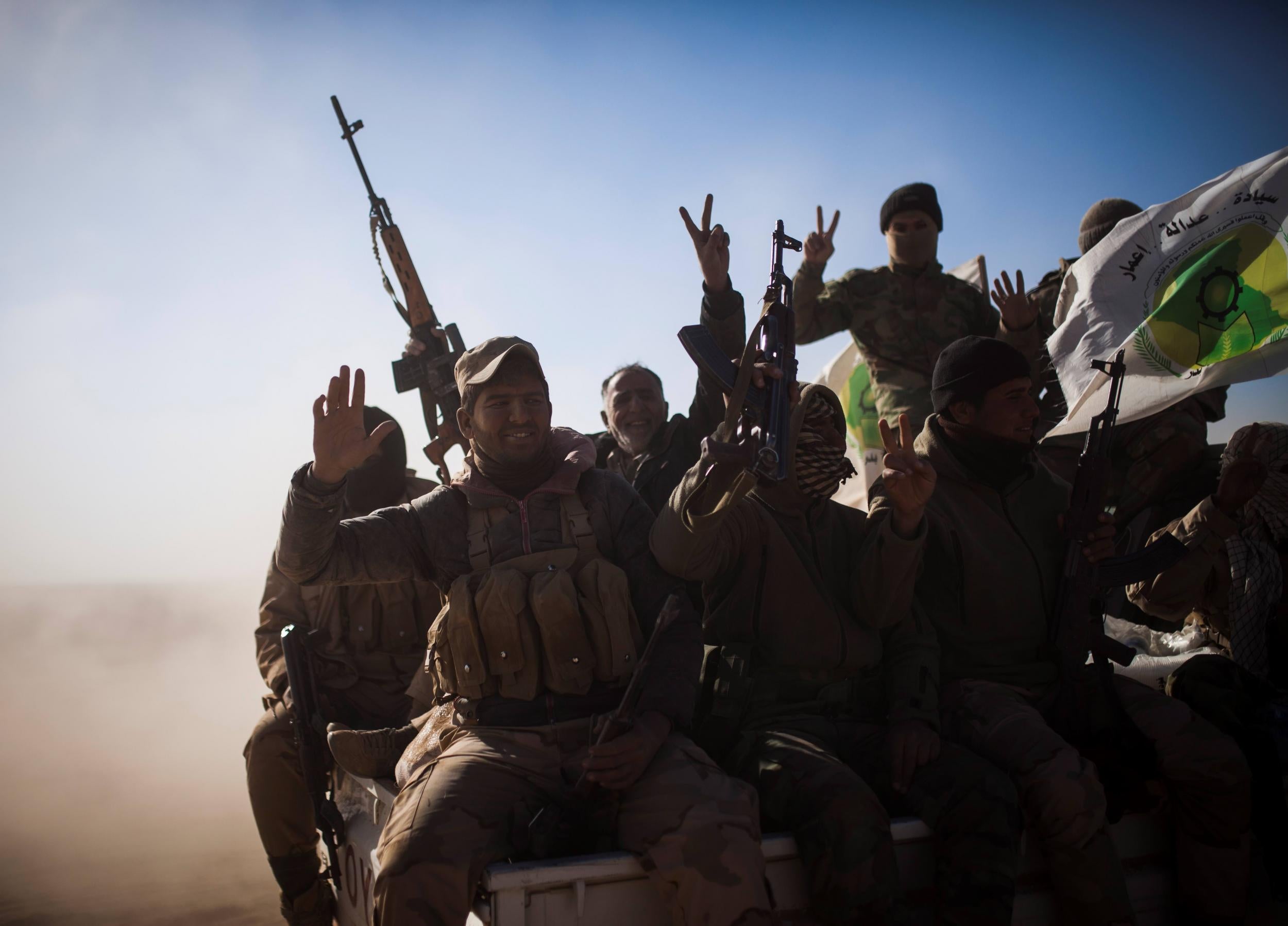Mass grave containing remains of 643 civilians discovered in Iraq
Deaths believed to be related to Iraqi militia group who liberated Fallujah from Isis

A mass grave containing the remains of 643 civilians has reportedly been discovered near a former ISIS battleground in Iraq – with those inside believed to have been members of a Sunni tribe reportedly targeted by Iraqi militias.
Saudi news outlet Al Arabiya said official sources had confirmed the bodies, found along the side of a road 5km north of Fallujah, belonged to the al-Muhamdah tribe – a group who had disappeared in 2016 and hadn’t been seen since.
The territory is believed to have been under the control of Iraqi soldiers under the banner of the Popular Mobilization Units (PMU), also known as Hashd al-Shaabi, a conglomerate of militias accused by the US and Israel of being backed by Iran.
The militias were among many to be involved in the driving out of ISIS from the country – and were key to the battle of Fallujah where they fought alongside Iraqi state forces to free the city from the terror group’s militants in 2016.
However shortly after the liberation of the territory, Amnesty International said at least 643 men and boys had disappeared from the region in a series of abductions by men who identified as part of the PMU.
They organisation said the civilians were held at a location they described as the “yellow house”, where they were tortured and held without food or water. Survivors said they were beaten around the head and body, while being accused of belonging to ISIS.
One survivor told the NGO: “They didn’t give us anything to drink for the first day; on the second they brought a small bottle for 10 people. They took about 300 of us to the truck; it was dirty and smelled repulsive.
“I think it was used to transport farm animals before us. They handcuffed us two by two. One man died right there, I think from thirst and suffocation… Others were taken out and then I could hear gunshots. Later I could also smell burning.”
Following the conclusion of the battle against ISIS in the region, the grouping has strived to become an incorporated part of the Iraqi state - with the goals of the PMU’s top brass increasingly shifting from the military to the political.
But international condemnation of the group has continued. While the predominantly Shia group is made up of multiple factions, a number of militias under the banner swear loyalty to Iranian supreme leader Ali Khamenei.
In July Prime Minister Adil Abdul-Mahdi, who recently resigned, inviting the PMU to join the Iraqi military after the US urged the group to demobilise.
And in October Israel was accused of launching a number of drone strikes against the group’s bases – a claim not directly addressed by the state.
Join our commenting forum
Join thought-provoking conversations, follow other Independent readers and see their replies
0Comments